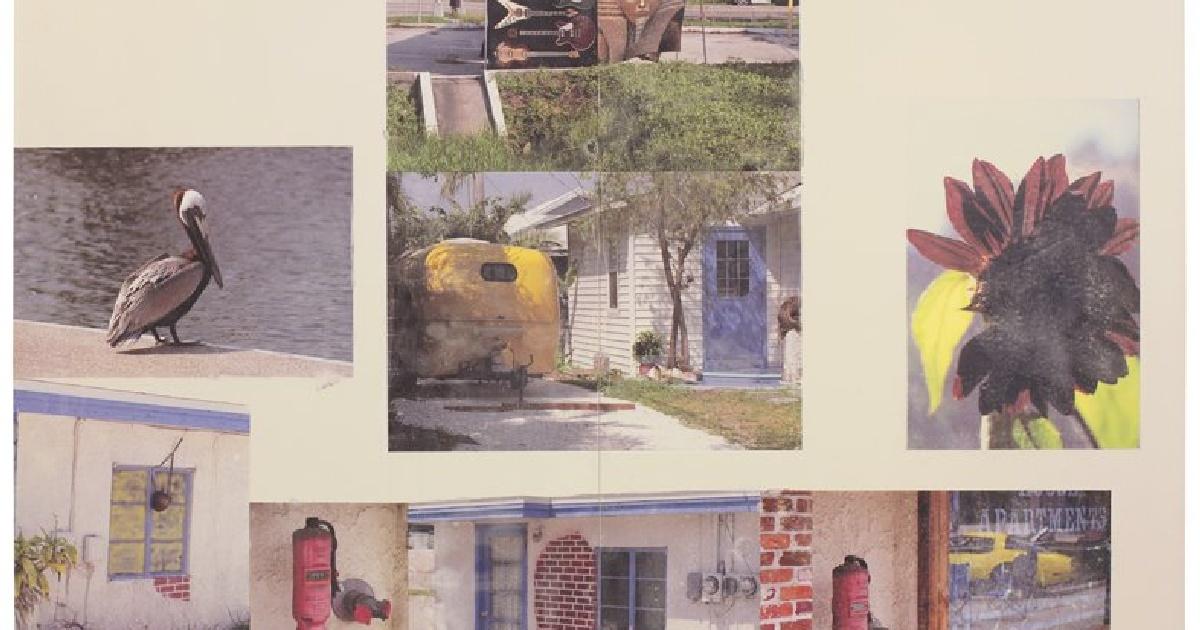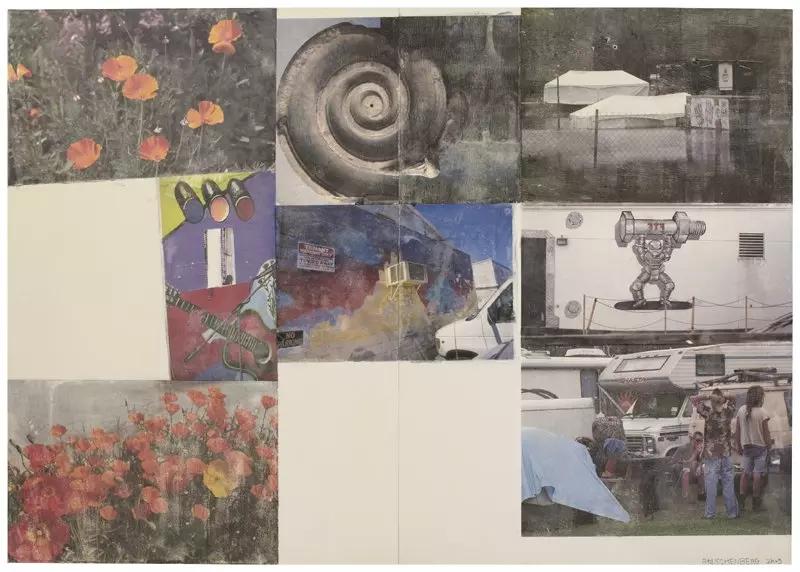Robert Rauschenberg's "Scenarios" series, created between 2002 and 2006, represents a significant phase in the artist's late career, marked by a return to autobiographical and reflective themes. Utilizing a transfer process that he began in the early 1990s, Rauschenberg employed digital color images produced on an inkjet printer. These images were then transferred onto large polylaminate panels, often arranged in a grid-like format with significant areas of negative space, creating a distinct visual language compared to his earlier, more densely layered works (Rauschenberg Foundation) (Rauschenberg Foundation).
The "Scenarios" series was developed during a period when Rauschenberg faced considerable physical challenges. After suffering a stroke in 2002, which partially paralyzed his right hand, he adapted his working methods. Studio assistants took photographs under his direction, which Rauschenberg then meticulously selected and placed on the panels. This collaborative approach was essential to the creation of the series, emphasizing a straightforward, unembellished transfer of images that maintained the integrity of the photographic source material (The Metropolitan Museum of Art).
Thematically, the "Scenarios" delve into various aspects of American life, capturing both mundane and significant moments with a panoramic and sometimes epic quality. The works have been described as "massive ‘super’ multilayered paintings that tell stories and cry out about American life" (Phillips). This series is reflective of Rauschenberg's broader artistic mission to merge art and life, using everyday images and materials to create complex visual narratives.
An example from the series, "Historic Detour," exemplifies this approach. Created in 2006, the piece is a diptych using pigment transfer on polylaminate, featuring a grid of images that collectively narrate a story while leaving room for interpretation. The work, like many in the "Scenarios" series, demonstrates Rauschenberg's innovative use of new technologies and materials, as well as his enduring commitment to exploring and documenting the human experience through art (The Metropolitan Museum of Art) (Rauschenberg Foundation).
The "Scenarios" series stands as a testament to Rauschenberg's resilience and creativity, showcasing his ability to adapt and innovate even in the face of personal adversity. The series is celebrated for its poignant reflection on American culture and its experimental use of digital technology in the fine arts.

